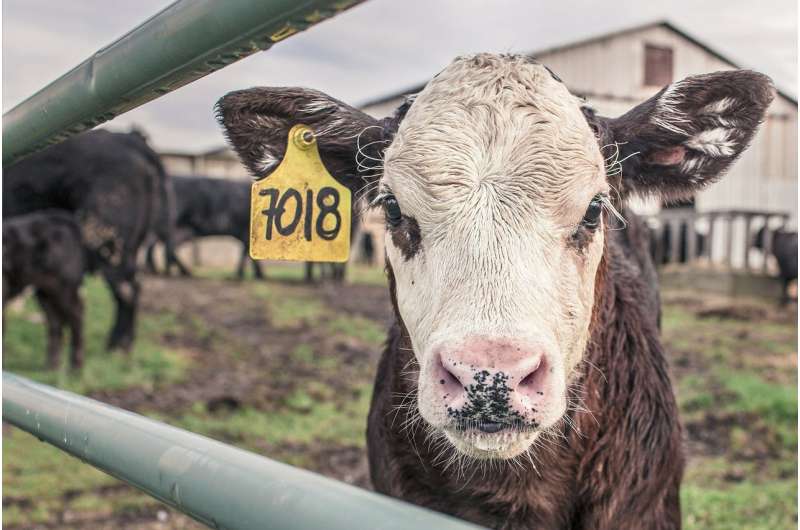This article has been reviewed according to Science X's editorial process and policies. Editors have highlighted the following attributes while ensuring the content's credibility:
fact-checked
proofread
Experts call for just and fair transition away from industrial meat production and consumption

A team of scientists has presented a five-step approach to through which governments can plan a transition away from high levels of industrial meat production and consumption that is fair and just for affected stakeholders.
As part of a policy forum article published in CABI One Health, researchers—led by Cleo Verkuijl of the Stockholm Environment Institute—argue that a just transition in animal agriculture is necessary for more effective and equitable One Health outcomes.
The scientists highlight that motivated by both environmental and public health concerns, policymakers in several countries are adopting regulatory and financial measures to address the overconsumption of animal products.
They argue that while these changes are clearly necessary and long overdue, it is crucial that they be planned carefully and inclusively to ensure a just transition.
A One Health approach aims to sustainably balance and optimize the health of people, animals, and ecosystems. Drawing on expertise from health, climate, biodiversity, and animal welfare policy and science across several regions, the policy forum article demonstrates how current levels of animal product production and consumption threaten One Health.
The scientists stress that under current trends, daily per capita animal protein consumption is projected to increase by 17% by 2050 from 2012 levels, while total meat production is projected to increase more than 60% between 2010 and 2050.
They say that the world's large and growing appetite for meat and other animal products has profound implications for One Health, given its impacts on human health, the environment, and animal health and welfare. So far, however, policymakers have given more attention to just transitions in other areas, such as energy policy.
Ms. Verkuijl said, "There is robust evidence that a reduction of animal product consumption is also needed in regions where these consumption levels are currently high.
"A shift away from industrial animal production should be prioritized, given the high levels of animal product consumption this kind of system enables, its relatively high environmental toll, linkages to increasing risks of antimicrobial resistance and zoonoses emergence, and harm to animal welfare."
To help policymakers prepare for a transition from high levels of industrial meat production and consumption, the scientists present five guiding principles that are just and in line with the One Health approach.
They include phasing down existing policies, programs and fiscal support that promote industrial meat production and consumption, increasing support for alternatives to industrially produced meat, and providing support to stakeholders to help offset the impacts of a transition. These include workers and communities of color, migrant and female workers, smallholder farmers, and informal and seasonal workers.
Of fundamental importance to a just transition is that the root causes of injustices in the meat sector should be addressed and that inclusive and participatory planning processes can enable stakeholders to participate meaningfully and produce plans that reflect and account for their concerns and needs.
The scientists add that support measures should seek to proactively address existing inequalities, rather than to simply avoid worsening them. This includes ensuring that solutions to tackle health or environmental impacts of animal agriculture do not worsen animal welfare.
Jonathan Green, a Senior Scientist at the Stockholm Environment Institute, added, "Planning and support for just transitions in animal agriculture is essential if we are to successfully address the climate, biodiversity, and human health crises. Such an approach can help ensure disruptions are minimized and benefits maximized for workers, rural communities, and others affected by our food system."
More information: A just transition in animal agriculture is necessary for more effective and equitable One Health outcomes, CABI One Health (2023). DOI: 10.1079/cabionehealth.2023.0021. www.cabidigitallibrary.org/doi … ionehealth.2023.0021
Provided by CABI





















